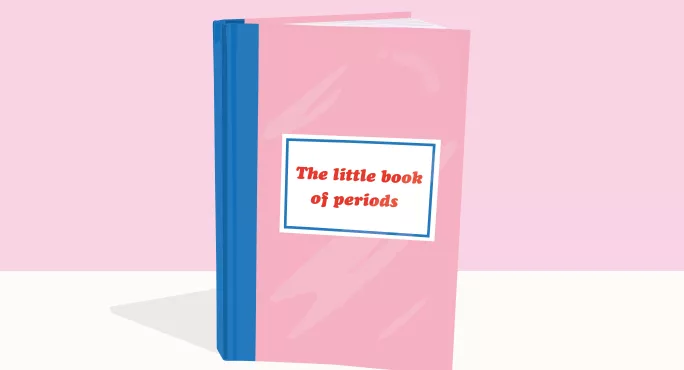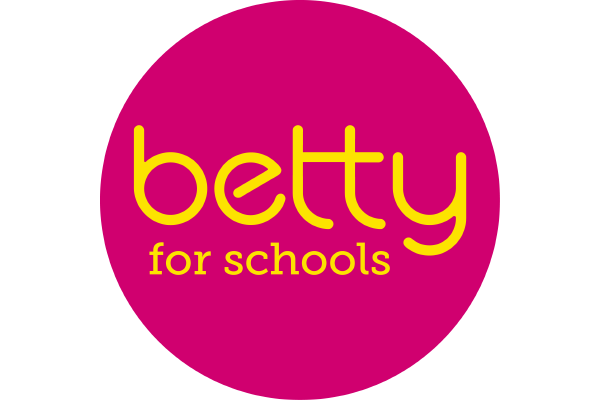How to take the awkwardness out of teaching about periods

If you’re reading this article, you may already be keen to teach about periods, you may be dreading it, or you may find yourself somewhere in the middle. With more awareness of the effects of period poverty, combined with a push for better sex and relationship education (SRE) provision, schools are starting to look for better ways to address menstruation education.
However you’ve come to the topic, it’s worth thinking about common barriers to make sure you’re challenging taboos rather than upholding them.
Do you mumble ‘period’ or pause imperceptibly before saying it? Do you assume anyone buying a pad or tampon would need it handing over covertly? Do you wrinkle your nose at words like ‘discharge’ or ‘period stain’? If you can confidently disagree, have you seen colleagues or pupils react this way? Awkwardness is a two-way street, and the more advanced planning you do, the more easily you can improvise through any tricky moments and the easier it gets.
Here’s some advice on how to overcome embarrassment and some practical approaches to use in the classroom.
Do the groundwork
Not everyone is embarrassed about periods. If you don’t find them embarrassing, brilliant. It’s quite likely you had some positive experiences learning about them that led to a good level of confidence approaching the topic now. However, it can be quite daunting for most teachers and that’s nothing to be discouraged about. Menstruation isn’t - yet - a teacher training subject area, nor has it been prioritised in most schools, particularly back when we were pupils ourselves. It’s understandable that a teacher’s confidence discussing the subject often comes down to their own personal knowledge and experience of menstruation, but it doesn’t matter if you menstruate or not, what’s important is to do a bit of self-evaluation to make sure that you don’t retain any internalised biases from how you were taught.
The language of periods is still couched in euphemisms and we receive negative messages in the media that periods are dirty or should be kept secret. ‘Feminine hygiene’ and ‘sanitary protection’ are phrases used by the menstrual products industry that not only overcomplicate something as simple as ‘menstrual products’ - particularly for people who don’t know what those phrases mean - but also needlessly focus consumers on the link between periods and cleanliness. Periods are a vital sign, a regular menstrual cycle is an indicator of good health, so unconsciously referring to them as dirty or unsanitary can unintentionally reinforce low-level shame.
It’s important to review current thought around SRE and menstruation education and take the time to skill or reskill yourself. Best practice recommendations advise that pupils of all genders are taught together, that media literacy and taboo-breaking are taught along with the biology and practical management of periods, and that reusable menstrual products and the economy and ecology of periods are explored. Find out about all of the different kinds of menstrual products and look into the benefits of reusables; cloth pads, menstrual cups and period pants are becoming popular among young people and young adults in particular.
An excellent source for fact checking is Unesco’s recently updated International Technical Guidance on Sexuality Education. It covers the rationale behind current thought on menstruation education and how it fits into the wider picture of vital learning around relationships and sex education. The more you know, the less likely you’ll be caught off guard or miss an opportunity to support your pupils with menstrual worries.
Talk to other staff at school, and not just teaching staff but caretakers, support staff and the pastoral team as well, and let them know that you’ll be teaching pupils to be more confident talking about periods - so they may get a question or two themselves. Find out where disposable menstrual products are available in school, and if they seem inaccessible, request that it’s clear to pupils how to access them. Always reiterate to pupils not to flush pads and tampons.
When you plan what your lessons will include, it’s crucial to know what your pupils have already been taught. Ask primary school PSHE leads what their pupils learn generally and whether all pupils received the planned lessons that year or if any missed out. Have a question box in your classroom about menstruation and before you begin planning your lessons, give pupils post-it notes in pink, orange and green so that pupils can traffic light their most burning to least important questions. Providing structured time means they will probably ask more questions. Keep the questions anonymous and read them in your planning time and divide them into subjects and collate them into a mind map or outline of the different topics they hit within the broad areas of menstruation and reproductive health. Make sure that your planned activities address their questions, and that your responses are accurate and clear.
Make it fun
It’s significant that the contributors to the Unesco guidelines all agreed on the importance of participation and interactivity for making the sexual health topics engaging, memorable and ultimately truly valuable. There is an added benefit that this approach breaks the ice in a topic some pupils, parents and staff may feel uncomfortable with. When designing your lessons, ensure there’s an element of fun and a strong opportunity to associate something enjoyable and memorable with learning new facts or exploring scenarios.
When I do a baseline assessment with a group to see what they already know, I do a series of spectrum line activities, however, I don’t call it baseline assessment or even a spectrum line. Instead, I put coloured circles on the floor and call it ‘Menstrual Knowledge Twister’. Starting out with a couple of laughs means that any nervous laughter blends in and doesn’t single people out or allow any immature reactions to become contagious. When everyone is laughing together it becomes clear that we’re laughing with each other and not at anyone, and that we can have a laugh about periods without laughing at those who menstruate.
Activities should have a collaborative and creative element. For example, instead of simply telling or showing pupils the different kinds of menstrual products, they can do a dance. To add in some media literacy, pupils can look at advertising messages and packaging and deconstruct each brand’s unique selling point, separating useful information from false promises or messages of secrecy designed to catch the customer’s attention. They can then have a design competition to create their own campaign that breaks taboos or even design their own product. Encourage pupils to remember this activity every time they see a new product or advert.
Work together
As well as looking at the biology, management and media literacy of menstruation, approach the topic of menstruation holistically by looking at other intersecting issues such as single-use plastics and period poverty. Have pupils calculate the cost of various disposable and reusable products brand by brand and have them explore reusable menstrual products in depth as there are a lot of new options available. They can create their own campaign promoting eco-aware solutions to period poverty.
Whatever activities you design, communicate these to colleagues so they can reinforce the atmosphere you’ve created, and get involved with cross-phase and cross-curricular work. Try to evaluate the success of your lessons so you can make improvements and position yourself as a valuable source of knowledge, providing young people with the tools to make healthy choices about menstruation management, access to reproductive health advice.
The best way to take the awkwardness out of teaching about periods is to treat the topic like it should never have been awkward in the first place. Because it shouldn’t be. If you can commit to getting clued up, the advice above will become second nature and your classes will provide a welcome open forum for learning about periods.
Chella Quint is a menstruation education researcher, a former head of PSHE and founder of #periodpositive
You can find free PSHE Association-accredited resources and curriculum-linked lessons about periods at betty for schools. They are the perfect way to kick-start the period conversation in your classroom.
